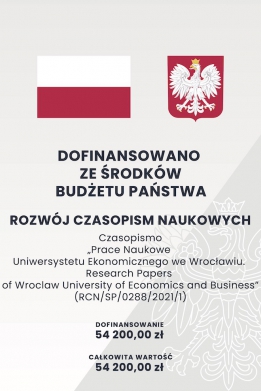Macroeconomic Stability in Transition Economies as an Effect of EU Membership in Light of a Comparative Analysis
Abstract
Pre-accession preparations and accession to the European Union were a significant institutional change for the transition countries. Non-EU countries such as Albania, Serbia, Ukraine, Belarus, Georgia and Russia have also undergone economic transition. Are the given macroeconomic results in the Central and Eastern Europe countries the effect of the EU membership or do they just result from the transformation from socialism to a market economy? This research aimed to compare the macroeconomic stability of two groups: the post-socialist EU-member countries vs. the non-EU countries. The method used in the study is a comparative analysis that employs a pentagon model of macroeconomic stabilization. The surveyed countries followed various transformation paths, but the achieved macroeconomic stability indicators are measurable and comparable. The results show that the countries belonging to the EU were characterized as having a higher level of macroeconomic stability.(original abstract)Downloads
Download data is not yet available.
Downloads
Published
2020-01-30
Issue
Section
Articles
License
Copyright (c) 2020 Kamil Kotliński

This work is licensed under a Creative Commons Attribution-ShareAlike 4.0 International License.








